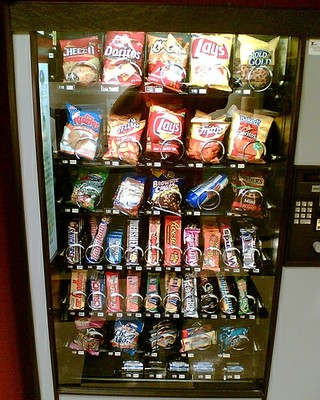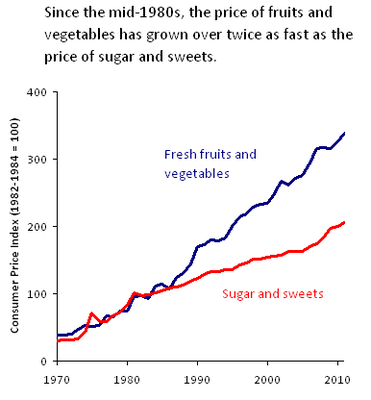 I was going to wait until Friday to include this New York Times Opinionator piece in our Weekend Reading links, but the idea is just too good to wait: why don’t we stop calling junk food “food”? I won’t try and top Mark Bittman’s prose, so here’s the salient part (after comparing food and obesity to tobacco and lung cancer):
I was going to wait until Friday to include this New York Times Opinionator piece in our Weekend Reading links, but the idea is just too good to wait: why don’t we stop calling junk food “food”? I won’t try and top Mark Bittman’s prose, so here’s the salient part (after comparing food and obesity to tobacco and lung cancer):
“I frequently hear, ‘The difference between tobacco and food is that you need food to live.’ This isn’t food I’m talking about, though, but food-like products. No one needs Pepsi or Whoppers.”
There’s a strong argument to be made that regular meals aren’t at the heart of the obesity epidemic in the US, but rather the blame lies largely in an abundance of cheap, empty calories that we consume between (or in addition to) real meals.
Over the last 40 years, the American food system has added over 500 daily calories per person to the food supply—that’s like eating a second breakfast every day—and most of those calories are in grains, fat, and sugar. Plus, the cost increases of real foods like fruits and veggies have far outpaced increases in the price of sugar (see chart below), meaning we can afford a lot more junk than food with nutritional value.

Part of the problem in getting folks to eat healthier is simply wording: any time we move to regulate toxic consumables, critics level the claim that it’s an attack on food—the most-basic necessity of human life. (Take for example the campaign to get a tax on sugary drinks in Washington, which was deftly defeated by cries of a “food tax.”)
By-and-large, junk food is empty calories devoid of nutrients or anything substantial. It’s just sugar, fat, and processed carbs (and sometimes wood pulp). So why don’t we call it what it is?
How would you label junk “food”? “Food-like products?” “Phood?” Maybe just “junk”? Let’s hear your ideas in the comments.
Photo credit: Vending machine / Steve W / CC BY-NC-SA 2.0

Comments are closed.